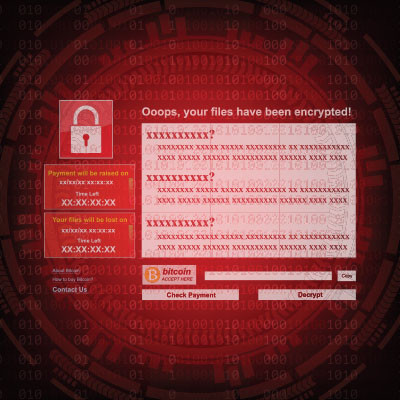Data loss can be from a cyberattack, hardware failure, or just plain bad luck. Either way, it is a real threat to your business. You can hedge against it by having solid data backup strategies in place. Today is World Backup Day, so we thought we’d go through some ways to build a data redundancy platform that will keep you from being left scrambling should disaster strike.
ImageSys LLC Blog
No business ever wants to suffer a data loss disaster, but that doesn’t mean that it’s not coming for you at some point during your operations. You have to be careful and take calculated steps to minimize the impact of such an incident. In particular, you want to avoid losing these three types of data, for it could make recovery all but impossible if you don’t.
If your business is still using tape backup, we’ve got news for you: you’re behind the times by a decade or two. Still, there might be some merits to using it, despite the overwhelming evidence that digital backup solutions like Backup and Disaster Recovery (BDR) are all-around better. Here’s why you might still use tape backup in today’s modern business world.
Data backup, while crucial to an organization’s continuity and sustainability, hasn’t had too many innovations over the past few years. Ever since businesses have started to do away with the resource intensive backups that required manual effort or antiquated methods (we’re looking at you, tape), backups and backup strategies have standardized a bit. In today’s blog, we’ll take you through that process and how emerging technologies are improving backup technology.
Data backup may not be at the forefront of your business’ technology list, but it needs to be a consideration. Like much of the technology we use for our businesses, backup is going through a lot of positive innovations at the moment. Let’s take a look at five things that are going to change the look of enterprise data redundancy.
Businesses rely heavily on technology and data to keep running smoothly. But what happens when disaster strikes? Whether it’s a natural disaster like a hurricane or an unexpected event like a cyberattack, businesses need a plan to keep going. This is where disaster recovery comes in. Let’s break down what disaster recovery is and why it’s vital for business continuity.
Where there’s business, there’s the opportunity for losses. Even if you have your operations locked down, circumstances will always arise far beyond your control. We’re talking about the big ones, the devastating data loss incidents that grind your business to a halt and threaten its future. You can take action now to prevent these types of disasters from happening.
Ransomware is a real problem; I mean, a real problem. Not only does it create serious problems for any organization that is victimized by it, it is about to be a completely pervasive problem for everyone. It is extremely important for your organization to take the threat of ransomware seriously by implementing a strategy to keep it from being an issue. Today, we offer a three-pronged approach to doing just that.
Digital storage has been evolving with the development of reliable and long-lasting devices with extremely fast storage and massive storage capacity. The innovation of the solid state drive (SSD) has changed the outlook of storage somewhat, but large-capacity SSDs can be expensive. The hard disk drive (HDD) is still a cost-effective alternative, but it is a mechanical device, which, over time, will be prone to failure.
No matter where your business calls home, it will be vulnerable to some sort of disaster, whether it’s a natural disaster that wipes your office off the map or a cyberattack that cripples your data infrastructure. You don’t have to resign yourself to this fate, though; with the appropriate tools, your business can survive just about anything and keep operations going even under the worst circumstances.
A good data backup protects your business’ information (and because of this, the business itself) from a wide variety of threats. Of course, to accomplish this effectively, a data backup needs to itself be secure and reliable. Let’s take a few moments and go over a few practices and policies you would likely find it beneficial to adopt.
When you have a thorough and powerful data backup strategy in place at your business, you are protecting your operations, your employees, and your customers from an array of terrible scenarios. Unfortunately, many businesses don’t think of data loss in the terms it should be considered in, a complete travesty. Today, we thought we would briefly describe the long and short of data backup and recovery practices that can put your business in a position to secure and restore your data should it be corrupted, destroyed, or stolen.
A business’ data needs to be considered a priority, which means that its protection should be prioritized accordingly. One facet of doing so is maintaining a backup with a strategy in compliance to best practices. To accomplish this, your backup should feature something that isn’t often considered a benefit: redundancy.
Part of being a successful entrepreneur is having a positive mental attitude. After all, pessimists wouldn’t make it far. Stats, however, tell a story regardless of a business owner’s perception. Statistically, most businesses will have to deal with some sort of “disaster”. That is: a situation where your business will be very much at risk. For this reason, we recommend BDR.
Tomorrow is World Backup Day, which--considering the current business climate as the coronavirus pandemic rages on--seems only too appropriate. Let’s discuss why times like these make it only too clear how critical a business continuity strategy is, especially when supported by the right backup solution.
Data recovery is more a strategy than a solution. You first need to keep a regular backup to ensure that you aren’t losing large chunks of productivity. Then, you need to have a strategy to efficiently recover data if it is corrupted, lost, or stolen. Today, we’ll talk a little bit about some situations that businesses run into that would spark data recovery.




















